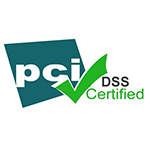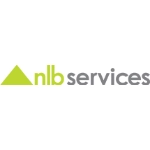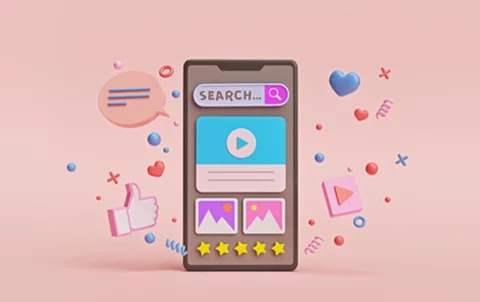© 2025 Next Level Business Services Inc. All Rights Reserved.
Leveraging AI in Recruitment: Transforming Talent Acquisition
By NLB Services
The recruitment landscape is on a transforming spree, owing to the swift advancements in Artificial Intelligence capabilities. To stay ahead of the competition, HR managers require more than just traditional ideas. It is time for innovative strategies to come into action to efficiently cover every aspect of recruitment so that the best candidate is readily available. For this, recruiters are leveraging AI and other emerging technologies to optimize their everyday operations and enhance the candidate experience.
AI in recruitment comes with a set of significant advantages, such as streamlining processes, automating repetitive tasks, and also some potential challenges like integration complexity and data privacy. AI-powered recruiting tools enable companies to identify and hire the best talent more quickly, efficiently, and accurately than ever before.
Understanding and integrating these new technology marvels is not just a choice anymore but a strategic necessity for organizations aiming to stay ahead in this dynamic environment of recruitment, talent acquisition, and retention. By integrating AI, companies are not only able to fill positions more effectively but are also enhancing their overall talent strategy.
AI’s ability to analyze talent trends, predict future staffing needs, and provide a deeper understanding of the skills and attributes of successful employees is what makes it a critical tool to utilize and explore by businesses and recruiters. In this blog, we will guide you through the characteristics and complexities of artificial intelligence in recruitment and how it can streamline talent sourcing and hiring, offering insights that may help transform your recruitment processes and hiring decisions.
What is AI in Recruitment?
AI for recruiting simply means utilizing Artificial Intelligence technology to enhance, streamline, and automate the hiring process. This uses machine learning, natural language processing, and predictive analytics to facilitate and improve various aspects of the talent acquisition process. Many AI tools in hiring can be integrated seamlessly with recruiters’ existing HR systems to enhance data management and accessibility. This allows systematic tracking of candidate applications and job postings, enabling smoother operational flows within HR departments.
A survey from Mercer.com revealed that close to 38% of TA and HR leaders favor using AI for sourcing or engaging talent for further pipelining. Alternatively, 28% of leaders use AI-generated data analytics in their talent acquisition practices.
Another insight shared by LinkedIn states that Generative AI is a major trend that is expected to influence Talent Acquisition in the upcoming years.
These insights highlight AI’s potential to impact recruitment processes and the growing reliance on technological solutions within talent acquisition. By leveraging AI, businesses not only optimize their recruitment efforts but also get a competitive edge in sourcing the best talent with utmost efficiency.
Benefits of AI in Recruitment
Implementing AI in recruitment processes offers multiple benefits for businesses looking to refine their talent acquisition strategies. By leveraging artificial intelligence, companies can streamline operations, improve the quality of hires, and reduce hiring expenses. Let us look at the advantages of AI recruitment portals in detail below:
Leveraging AI in recruitment and talent acquisition strategy offers numerous benefits for businesses aiming to up their recruitment game. With the help of AI, organizations can streamline operations, get good-quality hires, and bring down overall hiring expenses. Let us look at the list of advantages that AI recruitment brings to your hiring process:
Streamlined Candidate Screening
Tools like Hire AI, Beamery, Humanly, etc. can automate resume screening and help you apply the first filter. These tools help identify the most suitable candidates from a large pool of applicants. This can help HR teams save a significant amount of time spent on manual sorting and preliminary assessments and enable them to focus on engaging with potential hires.
Higher Accuracy in Hiring
AI can analyze historical data and learn from previous hiring outcomes, and through this analysis, AI can further help fine-tune job descriptions and candidate specifications as per hiring requirements. This enables a more accurate match between job roles and applicants, upping the chances of hiring the right talent who fits well with the company’s culture and needs.
Reduced Hiring Bias
AI algorithms are systematically designed to evaluate candidates based on their skills and experiences. This minimizes unconscious bias that many recruiters are affected by.
Cost Efficiency
Cost efficiency is one of the key advantages of implementing AI in recruitment. Through AI, HR can automate routine tasks that reduce the requirement for extensive manpower and can considerably cut down hiring costs. HR managers can also leverage AI in hiring processes to accurately predict the right candidate and reduce overall turnover rates.
Real-Time Data Insights
Through AI-backed analytics, HR teams get access to real-time insights into the recruitment process. From tracking how many applicants make it through each stage and identifying the challenges. This data is crucial for making informed decisions and optimizing recruitment strategies on a regular basis.
Improved AI Candidate Sourcing and Experience
With the help of AI, HR teams can automate communication with candidates to provide timely updates, feedback, and personalized messages throughout the recruitment process. This will not only improve the candidate experience but also build a positive employer brand image and attract top-tier talent.
AI Tools and Techniques Used in Recruitment
Artificial Intelligence is overhauling the recruitment landscape by offering smarter, more efficient ways to acquire talent. This includes streamlining recruitment processes, decreasing hiring time, and improving the overall quality of hires. AI’s potential in finding and securing top talent can not be understated. Organizations need to embrace the tools in order to forge ahead of the competition and secure the best talent in the market without breaking the bank. Here is how AI can be or is being used by organizations to streamline and enhance the recruitment process.
Candidate Screening
AI-powered sourcing tools use algorithms and machine learning to map suitable candidates from job boards, internal databases, and social media platforms. These tools are capable of analyzing vast amounts of data to identify talent quickly and accurately. Tools such as Findem and hireEZ use machine learning and attribute-driven AI to create precise talent pools by analyzing data from different platforms such as LinkedIn, GitHub, and Stack Overflow.
Resume Screening
AI tools can automate resume screening by extracting pertinent information like skills, experience, and education. This reduces manual effort and accelerates the process.
Chatbots and Candidate Engagement
With new advancements happening every day, AI chatbots have become capable enough to interact and enhance the candidate experience. AI chatbots can interact with candidates by answering queries, providing updates on application status and even assisting with the initial screening.
Predictive Analysis
Predictive analysis tools can help forecast hiring needs by analyzing an organization’s historical data and trends. This is very helpful in analyzing upcoming turnover rate spikes and bracing the recruitment teams accordingly.
Talent Assessment
AI-powered tools go a step ahead by providing platforms that evaluate candidates through gamification, behavioral analysis, and skill testing.
Candidate Profiling and Interview Scheduling
AI tools have access to the web and publicly available vast candidate databases to offer deeper insights and find the best-matching candidate as per the job description, requisite qualification, and experience. Similarly, AI tools, when integrated with HR dashboards, can even automate interview scheduling by handling calendars, sending reminders, and even rescheduling when needed.
Streamlines Onboarding Process
AI recruitment apps and software help in channelizing a smooth onboarding experience for new hires through automated routine tasks like document submissions, initial training scheduling, and integration with communication channels. This enables new employees to settle into their roles more effectively.
Real-World Examples of AI in Recruitment
Organizations across the world are leveraging AI in recruitment to reshape how they attract, hire, and retain talent. Below are some real-world examples that showcase how some of the top organizations are using AI and its impact on recruitment processes:
LinkedIn utilizes AI to deliver better matchmaking between job postings and candidates. Its AI algorithms analyze user profiles and behavior to recommend the most relevant jobs to potential candidates and the most suitable candidate profiles to employers looking to hire.
L’Oreal
L’Oreal, another big brand, takes advantage of AI to deliver a personalized candidate experience. Their AI system analyzes data from candidates’ applications and interactions to customize communication and keep candidates engaged throughout the recruitment process.
Mastercard
Mastercard, a card payment services company, utilizes AI in its recruitment processes to streamline and improve the accuracy of candidate screening. With the help of AI algorithms, they can swiftly analyze a huge number of resumes to identify the most qualified candidates, expediting the hiring cycle and improving the quality of hires.
IBM
IBM uses AI in talent acquisition by mobilizing its own IBM Watson tool that can study the personality traits of potential candidates. This allows them to match candidates to roles more effectively and forecast which candidates are most likely to succeed within the company.
Challenges and Ethical Considerations of AI in Recruitment
While embracing artificial intelligence in recruitment gives exciting opportunities, it also brings its own set of challenges that organizations, hr managers face. If you are looking to integrate AI in recruitment processes, make sure to look at these challenges that you need to tackle in order to successfully leverage the benefits of AI in recruitment:
Complex Integration
Incorporating AI into your existing HR systems can be technically challenging. Most of the time, companies face difficulties in making sure that AI tools function seamlessly with the current software flow. This needs significant IT resources and may lead to complete disarray and risks if anything goes sideways or is mismanaged.
Partner with skilled IT professionals and consult with them for AI recruiting software development that easily integrates with your existing HR systems.
Data Privacy
As you integrate AI with your hiring and recruitment processes, it requires access to a large amount of personal data of candidates, which can be a concern for many in terms of privacy and data protection. Organizations need to tread carefully with complex regulations such as GDPR to ensure they are compliant and handle candidate information responsibly and securely.
Algorithmic Biases and Fairness
Most of the quality of output that AI produces is based on what kind and quality of data it is trained on. If AI systems are trained on biased historical data, chances are that the results are also based on existing biases. Organizations and tech companies need to regularly check and update AI models to ensure fairness and avoid discriminatory decision-making by AI in hiring practices.
Substantial Initial Costs
As AI and the technology managing it are new and expensive, implementing it with HR platforms is also usually expensive. It is a huge investment, especially for small to medium-sized enterprises. Apart from the initial AI recruiting tech integration, businesses also need to invest time, money, and resources in training and support to get the best outcomes from AI tools.
Reluctance to Adopt Change
Using new methods and technology like AI in recruitment can face resistance from within the organization. HR teams and other employees can be doubtful of AI and fear that it may take over their work. To overcome this challenge, initiating clear communication about AI’s role as a supportive tool rather than a replacement with the team is important.
Future Trends of AI in Recruitment
While the path towards AI in recruitment appears challenging in the initial stages, the future of AI tools in recruitment looks quite promising. This will be the cornerstone for an intelligent and efficient hiring process that every organization aspires to. As technology moves ahead, AI’s role in transforming recruitment strategies is also likely to become increasingly inseparable and significant. Here are some AI hiring trends to look out for:
Leadership in Generative AI
Generative AI will take center stage in producing personalized recruitment content such as job descriptions, tailored emails, and feedback. This will make each interaction personalized and engaging for the candidates as well as the employers. This will also help in framing strategies that attract top talent by generating creative and insightful content that the audience resonates with.
Seamless Integration across Platforms
At present, seamless integration of AI tools with recruitment tools poses some degree of challenge, but as the technology advances and becomes efficient and affordable, businesses can expect AI recruiting software development to be able to efficiently integrate with multiple HR systems without issues, ensuring smooth data transfer and efficient recruitment process.
Ethical Use of AI
The focus on the ethical use of AI will increase. To ensure that these systems are transparent, unbiased, and fair, there will be some degree of regulatory framework that will be woven around the whole AI use cases. Businesses should stick to this practice since this commitment will help maintain trust and fairness in artificial intelligence recruitment systems.
Improved Virtual Interactions
AI recruitment tools will continue to aid i the virtual recruitment experience for the candidates by incorporating technologies such as Augmented Reality and Virtual Reality, to complement an engaging and immersive assessment environment for the employer as well as the candidate.
Conclusion
The transformative power that AI holds in recruiting processes can not be understated. As one of the fastest-growing transformational workforce solution providers in the market, NLB Services understands that AI is going to significantly transform the recruitment market, and businesses need to be well-prepared for it. AI offers multiple advantages in recruitment processes, including enhanced efficiency, speed, and accuracy in candidate selection. It also improves the candidate experience, facilitates data-driven decision-making, and improves job-candidate matching. Businesses willing to integrate AI in recruitment will have the advantage of sourcing top candidates with better efficiency. Businesses should start taking small and focused steps in areas where AI can make the most significant impact in their business process. Want to know about HR analytics? Read an insightful blog here.
Talent Solutions








